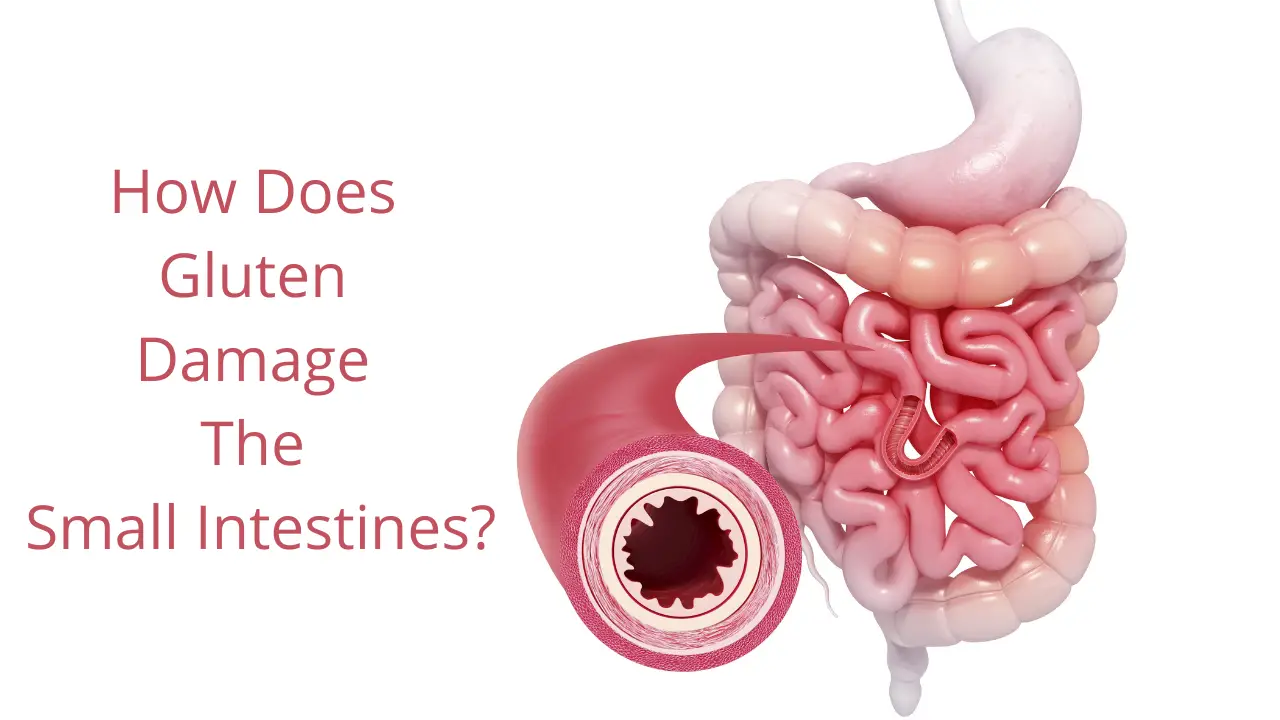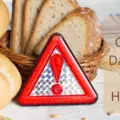For anyone who is suffering from celiac or gluten sensitivity, gluten impacts the entire body. Although, the organ most drastically affected by gluten consumption is the small intestines.
You might have heard how gluten damages the small intestines to the point that it takes years to recover fully. So now the question is precisely how does gluten damage this organ? We've got the answer to that and many related questions in this guide.
What is Gluten?
If you're not familiar with gluten, it's a protein mainly found in wheat, barley, and rye. It is also a part of processed foods, by-products of these grains, and some additives. Like other proteins, gluten is, under normal circumstances, good for the body.
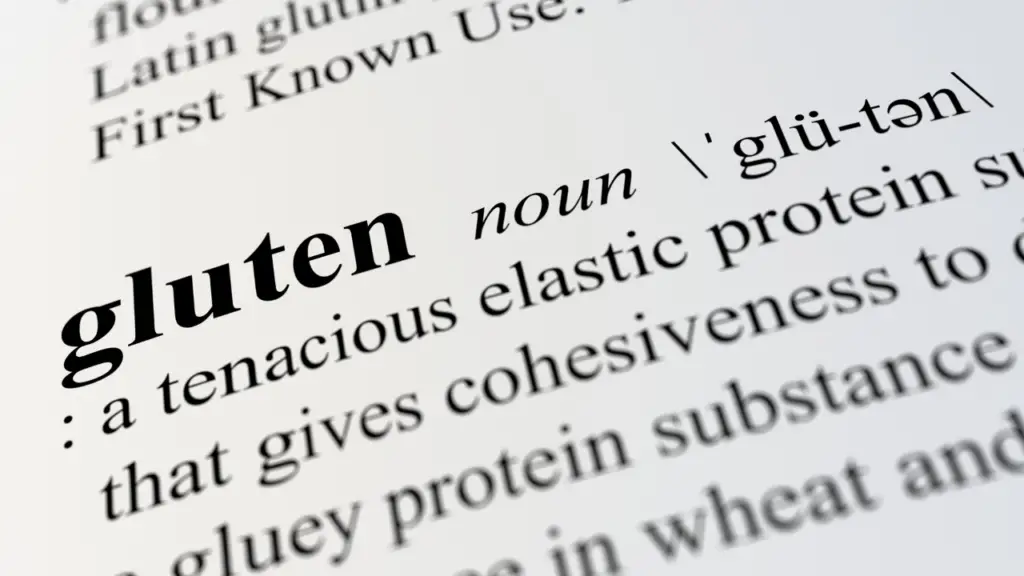
Proteins are a great source of energy and help in the body's structural integrity and vital functions. Unfortunately, that's not the case for everyone. Sometimes, gluten can become detrimental to the normal functioning of the body and result in harmful consequences.
When is Gluten Harmful?
Almost 1 percent of Americans can't eat gluten without suffering from severe symptoms. It means that nearly 3 million Americans have problems whenever they eat wheat, barley, or rye. Those people suffer from a medical condition called celiac disease. In perspective, 2.7 million people are affected by epilepsy, while 1 million individuals have Parkinson's disease.
Celiac patients suffer from a list of gastrointestinal symptoms. Most of them complain about constipation, stomach bloating, diarrhea, nausea, and fatigue. Some also develop entirely unrelated symptoms such as iron deficiency anemia, headaches, joint pain, and ulcer. The symptoms may be slightly different in children, as gas, short stature, irritability, and delayed puberty are more common.
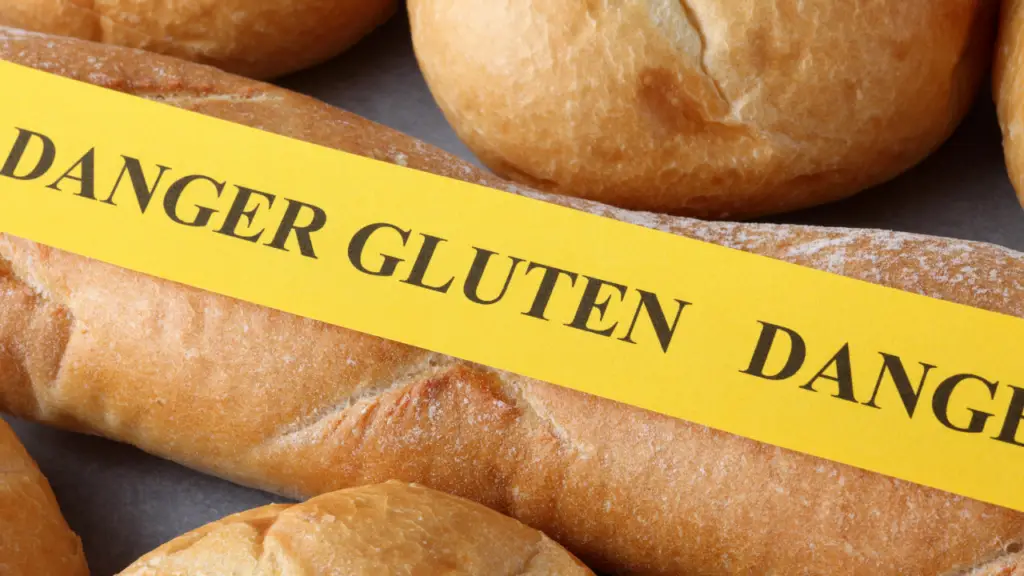
Gluten can only wreak havoc for these patients. Those who don't have celiac disease and don't suffer from these symptoms can eat gluten without worry.
How Does Food Enter the Small Intestines?
Let's dive into the digestive system of humans and how food makes its way to the intestines. Once you eat food, it goes through the digestive tract into the stomach. Now, you may be living with the misconception that the stomach is where the food is digested.
The stomach is only responsible for breaking down food into simple compounds called monomers. Each nutrient, i.e., protein, fat, carbs, etc., is broken down into a different monomer. Some of the food, though, is left undigested since the stomach cannot break it down. Both the digested and undigested food then goes to the small intestines.

The small intestines are where the food is digested into the body through the blood. The bloodstream takes the nutrients towards all cells of the body. Consequently, this provides the body cells with the energy to carry out their respective functions. The villiform the surface area of the intestines, and the large surface area aids in effective food absorption.
Once the food is absorbed, the leftover undigested food is pushed towards the large intestines. It then goes to the large intestines where water is reabsorbed, and the undigested food hardens and forms feces. Lastly, it moves to the rectum to be excreted out of the body.
Gluten & the Small Intestine
Now that we're aware of the concept of gluten and celiac disease, here's how gluten damages the small intestine.
The body of a celiac patient reacts violently even to a slight exposure to gluten. Our body and its immune system produce antibodies to fight against harmful agents such as bacteria and viruses. The immune system of a celiac patient is wired to create a plethora of antibodies that harm the body's tissues. Therefore, they start to damage the lining of the small intestine.
The lining of the small intestine is mainly responsible for the absorption of nutrients. There are tiny bumps called villi on the small intestine that capture the essential nutrients from the food. These are then passed into the bloodstream. Whenever a celiac patient eats gluten, their immune system produces these antibodies, further damaging the small intestine with each meal.
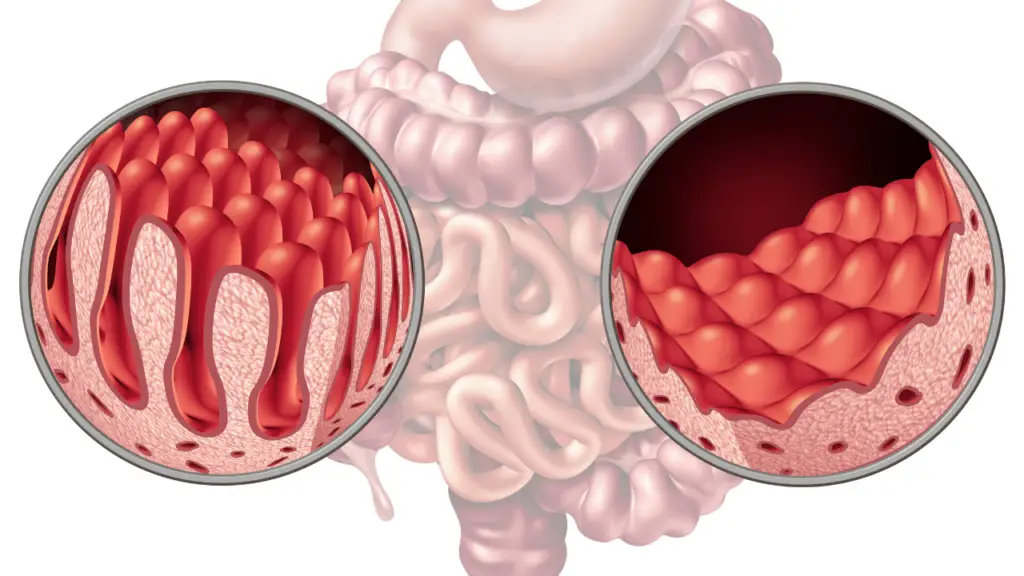
When these villi are broken down, the proper channel and mechanism through which the nutrients reach the blood is disturbed. It leads to the onset of various deficiency diseases since the nutrients are not being adequately absorbed.
The situation worsens if the celiac patient is undiagnosed and keeps eating food containing gluten. Therefore, typical gastrointestinal symptoms such as bloating and abdominal discomfort become more severe with time. As a consequence of the damage, other complications also start to develop.
Complications from Eating Gluten
Most of these complications are not related to it, but sometimes, the small intestine becomes subject to further harm. It's a general misconception that all bacteria are harmful to the body. Similarly, fungi are a vector of disease and damage. Well, that isn't true, at least to an extent. When these are allowed to live under certain restrictions, they can be highly beneficial to the body.
The small intestine is a natural habitat of a specific yeast called “Candida Albicans.” When the small intestine of a celiac patient is damaged, the immune system of the small intestine becomes compromised. It is unable to perform as efficiently as it did before, and as a result, it fails to keep a check and balance on candida. The yeast seizes its chance and starts to increase.
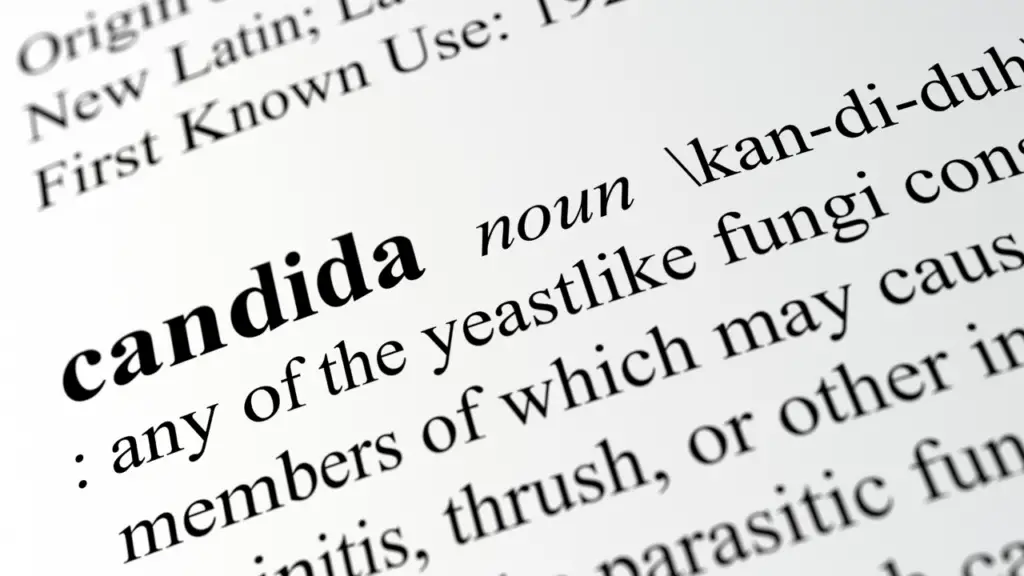
This condition is called candida overgrowth or candidiasis. The symptoms are stomach bloating, diarrhea, gas, nausea, constipation, and abdominal pain, the same as celiac disease. So, if a celiac patient also develops candidiasis, the symptoms become graver and attain a dangerously strong intensity.
All of this because of the damage inflicted upon the small intestine of a celiac patient on gluten intake.
What Are the Possible Treatments?
If a patient with celiac disease is recently diagnosed, they look to start a treatment. Unfortunately, there's only one treatment available for celiac disease, strictly following a gluten-free diet. The root of the problem was regularly eating gluten. It continuously damaged the lining of the small intestine.
But after being diagnosed, if the patient stops eating gluten, the immune system will stop making harmful antibodies. As a result, the small intestinal lining will be saved from the attacks and will get an opportunity to heal.

According to experts, it takes almost 3-4 months for the small intestine to heal completely. For some, it may take longer, even years, before their body is back to normal. The trick is to listen to your body and understand what it needs instead of relying on general information. After all, everyBODY is unique.
How To Prevent Recurrence of Symptoms?
Celiac and gluten sensitivity are two conditions whose treatment and prevention are similar, making them somewhat unique. In the case of other diseases, you resort to medicinal or surgical treatment typically. Afterward, the prevention may include dietary changes, hygienic habits, lifestyle changes, etc. Celiac and gluten intolerance entirely depends on your diet; that's the prevention AND the cure.
Once you've identified gluten as a source of the problem, a lifelong gluten-free diet becomes essential. Your body is systemized so that gluten will disrupt the digestive system all over again upon intake. You wouldn't want the symptoms to reappear after your body has healed.

Many think that they can start eating gluten again once their intestines are healthy again. That's the last thing you should be thinking of! Ultimately, they step back to their gluten ways.
Prevent the symptoms from coming back by permanently eliminating gluten from your diet and shifting to a healthier lifestyle. Don't go for highly refined foods to substitute the gluten traditional. Instead, eat healthy, natural foods. And, don't forget to exercise and drink lots of water!
Final Thoughts
Living with celiac or gluten intolerance can be daunting at first. You'd be thinking that eating a gluten-free diet is the end of devouring your favorite comfort foods for the rest of your life. The reality is opposite to this. It just takes a few changes to get yourself accustomed to the change.

Shift to gluten-free substitutes for traditional gluten grain-based foods. It's a gradual process. But once you're familiar with the diet, you'll be making tons of mouthwatering foods you've probably been overlooking before!

